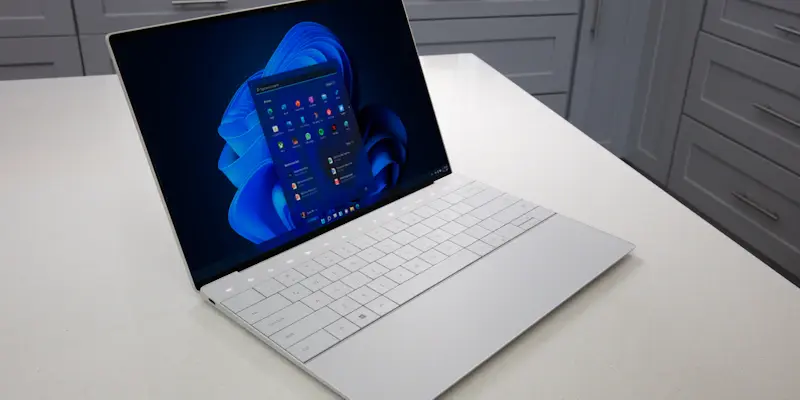In the ever-evolving landscape of artificial intelligence, Microsoft has pushed boundaries with Windows 11, introducing features that promise enhanced user experience through AI-driven capabilities. Among the most anticipated is the controversial Recall feature, which has entered the final stage of testing in Windows 11 previews. The Recall function, alongside the Click to Do feature, invokes both excitement and concern due to its AI-centric approach to enhancing user functionality. Recall utilizes AI and routine screenshots of user activity to perform deep natural language searches, offering unprecedented convenience. However, these advancements raise significant privacy and security concerns that cannot be overlooked.
Introduction of Recall and Click to Do
Recall and Click to Do are progressing through the Release Preview channel, bringing users closer to experiencing these new technologies. These features are exclusive to Copilot+ PCs, requiring a robust Neural Processing Unit (NPU) specific to these devices for optimal functionality. Recall’s ability to utilize AI for deep natural language searches is particularly noteworthy. By capturing routine screenshots, it enables users to search for specific activities or documents with exceptional precision. The introduction of Recall and Click to Do is not merely an upgrade but a paradigm shift in how users interact with their devices. This shift comes with promises of greater efficiency and streamlined operations, but also challenges related to user privacy and security. The potential benefits of Recall are evident. The AI-driven search functionality can significantly enhance productivity by simplifying the process of retrieving information. Click to Do complements Recall by offering context-sensitive suggestions, further improving user workflow. Together, these features could redefine the user experience in Windows 11. However, the concerns surrounding privacy cannot be ignored. The idea of routine screenshots being taken and analyzed by AI raises questions about data security and user consent. Microsoft’s gradual release strategy for these features reflects a cautious approach to addressing these issues while refining the functionalities for a broader audience.
Addressing Privacy and Security Concerns
As Microsoft prepares for the wider rollout of Recall, privacy and security remain at the forefront of discussions. To mitigate these concerns, several measures have been implemented, such as Windows Hello sign-in, which verifies the user’s presence during Recall operations. These security features aim to ensure that the AI functions are used responsibly and securely. Despite these preparations, skepticism persists regarding how well Recall will perform in real-world applications and its susceptibility to security threats.
Another aspect to consider is the vulnerability of the AI-driven system to potential misuse or cyber threats. As much as Recall promises enhanced functionality, it also introduces new vectors for privacy breaches. Therefore, Microsoft’s phased deployment strategy, beginning with a preview label, serves as a controlled introduction. This approach allows for meticulous monitoring of performance and addressing any emerging issues before a full-scale rollout. By taking these precautions, Microsoft demonstrates its commitment to balancing innovation with security, ensuring that the deployment of Recall and Click to Do is both beneficial and safe for users.
Regional Discrepancies and Language Support
Microsoft has also announced that Recall will be optimized for a limited set of languages initially, including English, Chinese (Simplified), French, German, Japanese, and Spanish. This selective rollout ensures that the feature can be fine-tuned to cater to different linguistic requirements and nuances. However, users within the European Economic Area will experience a delayed release due to regional data regulations. These regulations necessitate additional compliance measures, pushing back the availability of Recall in these regions to later in the year.
The delay in certain regions highlights the complexity of introducing AI-driven features that must adhere to diverse global standards. This meticulous approach is essential to ensure compliance with stringent data protection laws, thereby safeguarding user privacy. Microsoft’s strategy of staggered releases and controlled introductions across different regions suggests a comprehensive plan to manage the intricacies of international data regulations while leveraging AI’s capabilities to enhance functionality in Windows 11. In addressing these regional discrepancies and language support challenges, Microsoft is paving the way for a more universally acceptable AI-driven feature that aligns with both global and local standards.
Anticipation and Implementation
In the ever-evolving landscape of artificial intelligence, Microsoft continues to push boundaries with Windows 11, rolling out features that promise an enhanced user experience through AI-driven capabilities. One of the most highly anticipated and controversial is the Recall feature, currently in the final stage of testing in Windows 11 previews. The Recall function, alongside the Click to Do feature, has generated both excitement and concern due to its AI-centric approach to improving user functionality. Recall utilizes AI technology and routine screenshots of user activity to perform deep natural language searches, offering unprecedented convenience and efficiency. However, these advancements inevitably raise significant privacy and security concerns that cannot be overlooked. The ability of AI to track and analyze user behavior to such a detailed extent prompts questions about data protection and user consent. As Microsoft moves forward with these innovations, it will need to address these concerns to maintain user trust and ensure data security.

